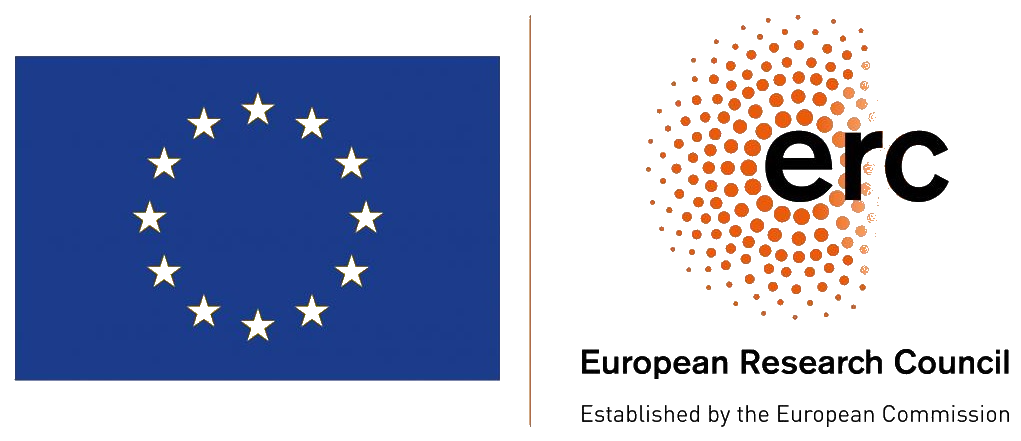About the Project
JaNet: Janissaries in Ottoman Port-Cities: Muslim Financial and Political Networks in the Early Modern Mediterranean (2020-2025)
European Research Council Starting Grant scheme (StGr2019 no. 849911, Funded under: H2020-EU.1.1.)
Principal Investigator: Dr. Yannis Spyropoulos
Start date: 1 February 2020, End date: 31 January 2025
Overall budget: € 1,498,389
Hosted by: Foundation for Research and Technology Hellas, Greece
The project “JaNet: Janissaries in Ottoman Port-Cities: Muslim Financial and Political Networks in the Early Modern Mediterranean,” funded by the European Research Council under the program Starting Grant 2019, aspires to create an innovative entanglement of military, social, political, and economic history which has the potential to change our current perception of the early modern Mediterranean and the role of Islam in it. JaNet investigates the economic and sociopolitical role of the Janissaries in the 18th and early 19th centuries through their examination as a complex of interconnected networks in the Mediterranean. By studying the Janissary corps, the project brings forward a radically new historical analysis concerning, on the one hand, the role of Muslims in the Ottoman and wider Mediterranean commercial economy – a role largely ignored by the bibliography – and, on the other, the processes that led to the creation of diasporas and the dissemination of people and ideas among various Muslim communities in the area.
JaNet’s research team consists of Yannis Spyropoulos (Institute for Mediterranean Studies/FORTH, Rethymno, Greece), as Principal Investigator, Abdulmennan Mehmet Altıntaş (Institute for Mediterranean Studies/FORTH, Rethymno, Greece), Yahya Araz (Dokuz Eylül University, Izmir, Turkey), İrfan Kokdaş (Kâtip Çelebi University, Izmir, Turkey), Demetris Papastamatiou (Aristotle University, Thessaloniki, Greece), Mehmet Mert Sunar (Medeniyet University, Istanbul, Turkey), Anna Sydorenko, (Institute for Mediterranean Studies/FORTH, Rethymno, Greece), Aysel Yıldız (Institute for Mediterranean Studies/FORTH, Rethymno, Greece), as well as PhD candidates, MA students and technical staff. The project’s Advisory Committee consists of Antonis Anastasopoulos (University of Crete/FORTH, Rethymno, Greece), Virginia Aksan (McMaster University, Hamilton, Canada), Linda Darling (University of Arizona, Tucson, United States), Jane Hathaway (Ohio State University, Columbus, United States), and Baki Tezcan (University of California, Davis, United States). JaNet is hosted at the Institute for Mediterranean Studies of the Foundation of Research and Technology – Hellas (IMS/FORTH), situated in Rethymno, Greece, with the collaboration of Istanbul Medeniyet University and Izmir Kâtip Çelebi University (Beneficiary Institutions).
JaNet examines the Janissary corps in the 18th and early 19th centuries as one of the main channels for the participation of various Muslim social strata of the Ottoman periphery in the Empire’s developing credit market and commercial life, as well as a gateway for their involvement in local and imperial politics. It aims at underlining the corps’ function as a platform for the exchange of people, goods, and ideas between different localities covering a vast geographical area. When examined from a Mediterranean perspective, this view allows us to look beyond the information provided by Europe-centered sources and to drastically redefine the sociopolitical and financial role of Muslims in the area
JaNet puts forward an approach which revolves around three major research axes: The first axis is the study of the administrative and social developments that led to the formation of local and trans-provincial Muslim networks in the Ottoman Empire; the second axis is the revision of the currently existing deeply unbalanced view of the 18th- and early 19th-century eastern Mediterranean trade, one in which seemingly only non-Muslims, either from various Western European countries or from the Ottoman Empire, played an important role; the third axis is the examination of the political mobilization of people and the exchange of ideas between Muslim communities of the Mediterranean.
By dwelling on these central themes, the JaNet team’s objective is to a. examine, in a comparative perspective and through an analysis based on the evolution of the Janissary corps, a significant number of port-cities in North Africa, Egypt, Syria, the Aegean, Anatolia, the Danube, the Adriatic, and the Black Sea as a unified space of multiple interconnections and diasporic formation for Ottoman Muslims; b. explore the processes that led to the creation of extended commercial networks and credit markets among Muslim populations at a time of increasing monetization for the Ottoman economy and before the establishment of a central Ottoman banking system; c. compare between the parallel developments of a number of Western European and Ottoman Islamic financial institutions in the common Mediterranean framework, and study the interaction that such developments entailed; and d. analyze the reciprocal political relationship established between the Janissary corps’ central and peripheral structures, as opposed to the dominant in the bibliography ‘one-way’ Istanbul-oriented approach.




